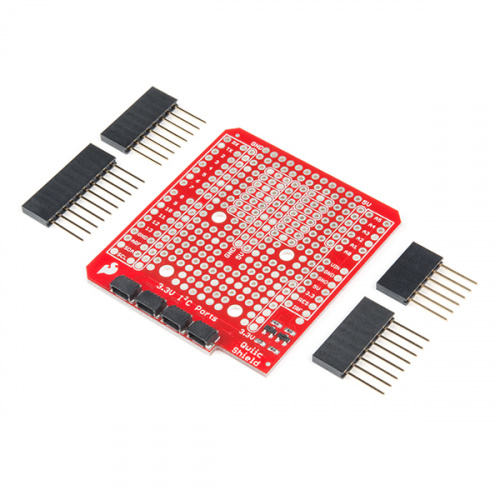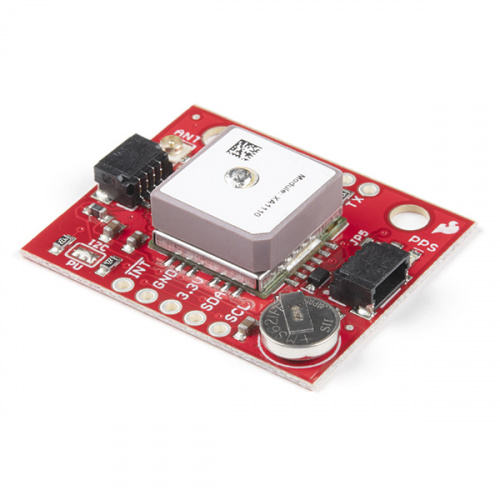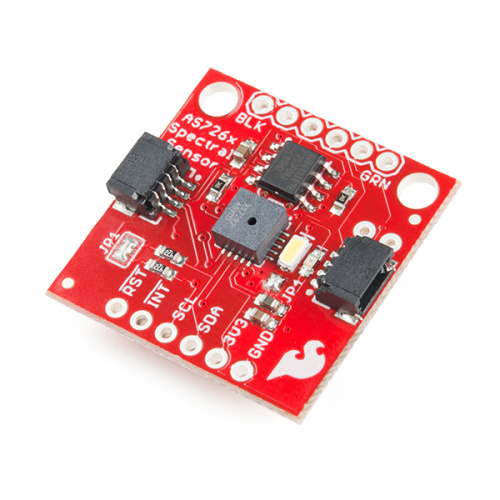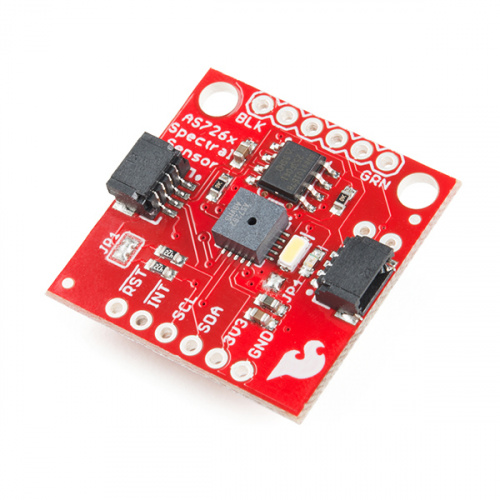Hello, and welcome to another Friday Product Post here at SparkFun Electronics. We are busy getting everything back in order after our ninth annual Autonomous Vehicle Competition last weekend, but that doesn't give us any excuse not to release these four fantastic boards today. So let's be Qwiic about it!
Today we are pleased to bring you two new spectral sensors, a new GPS module and a new shield for Arduino-based development boards --- all equipped with Qwiic connectors. We even have a new hub for all of our Qwiic boards, so let's take a look!
Qwiic! Get your shield up!
The SparkFun Qwiic Shield for Arduino is an easy-to-assemble board that provides a quick way to incorporate the Qwiic Connect System with your Arduino-based device. This shield connects the I2C bus on your Arduino to a series of SparkFun Qwiic connectors and provides the circuitry to convert the 5V given to the 3.3V required by I2C boards in our Qwiic system. As long as your devices are on different addresses, the Qwiic system allows for daisy chaining, meaning you can stack as many sensors as you’d like to create a tower of sensing power!
I2C GPS in a pinch!
The SparkFun XA1110 GPS Breakout is a small I2C-supported module built for easy hookup, thanks to our Qwiic Connect System. Equipped with the XA1110 GPS module from GTOP, this board utilizes the MediaTek MT3333 chipset, loaded with specialized SparkFun firmware that enables both I2C and serial ports simultaneously. Using I2C means you won’t have to tie up your serial port with GPS, leaving it open to other possibilities.
Find out just HOW visually stunning objects are through SCIENCE!
The SparkFun AS7262 Visible and AS7263 Near Infrared Spectral Sensor Breakouts bring spectroscopy to the palm of your hand, making it easier than ever to measure and characterize how different materials absorb and reflect different wavelengths of light. The AS7262 and AS7263 breakouts are unique in their ability to communicate by both an I2C interface and serial interface using AT commands. Hookup is easy, thanks to the Qwiic connectors attached to the board --- simply plug one end of the Qwiic cable into the breakout and the other into one of the Qwiic shields, then stack the board on a development board. You’ll be ready to upload a sketch to start taking spectroscopy measurements in no time.
That's all for today, folks. We hope you are enjoying our Qwiic line as much as we are. We really want to make sure I2C becomes easier and easier to use! As always, we can't wait to see what you make with these parts! Shoot us a tweet @sparkfun, or let us know on Instagram or Facebook. We’d love to see what projects you’ve made!
Thanks for stopping by. We'll see you next week with even more new products!










There can be only One...One of my favorite movies (first part at least). Go ahead..you made my day.
Thanks (and agreed about the first part)! I've been holding onto this title since last month when we released all the cables.
You need to include a board based on the TCA9548A I2C Multiplexer in your Qwiic lineup. This part enables using different i2c devices that have the same address on a single i2c bus. Adafruit has a good product based on this part.
There are two SparkX Qwiic boards that actually utilize the PCA9548A rather than the TCA9548A. I believe there are plans to make one or both into official SparkFun boards but I am not sure when that may be.
EDIT: Deleted wrong company names.